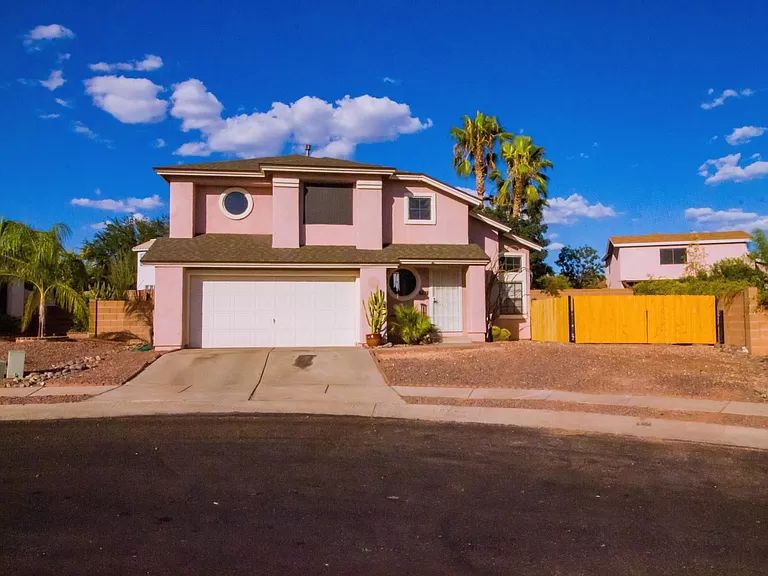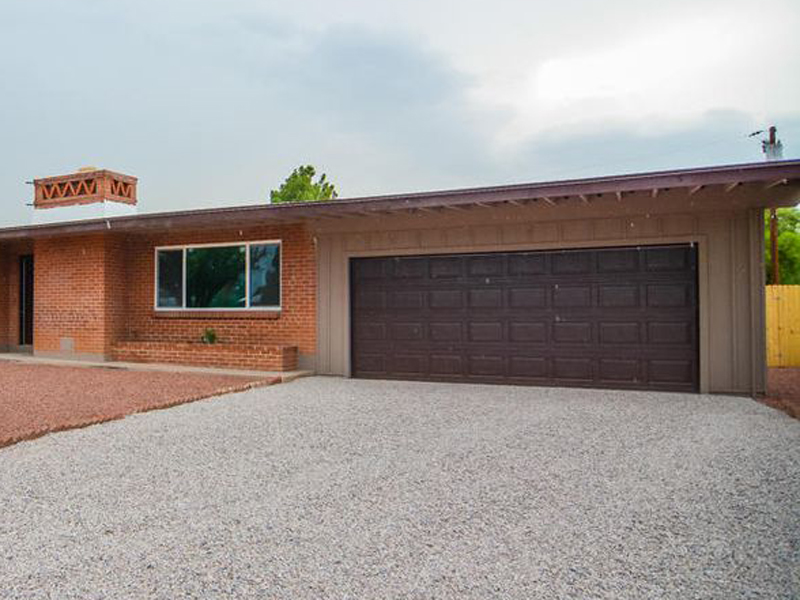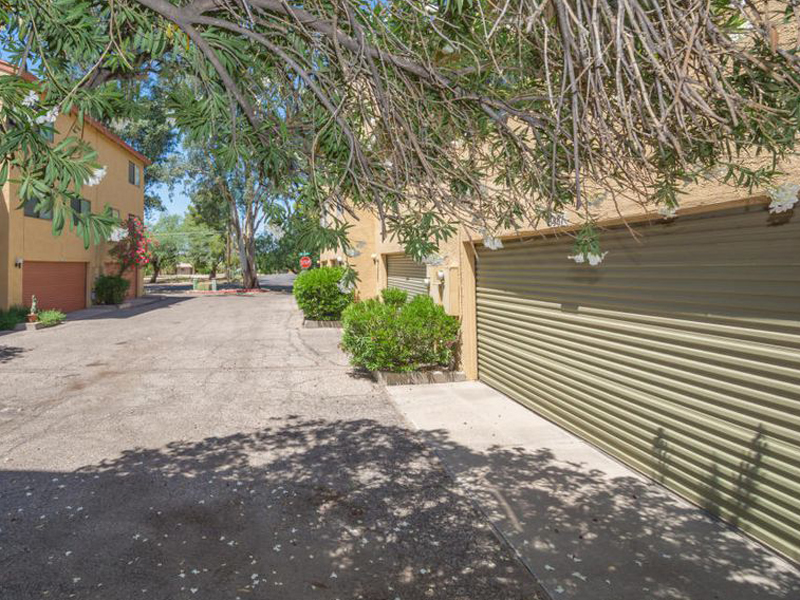Is Your Garage Door Stuck? Below's What to Do Initial
When your garage door won't open up, begin with these vital safety and security checks before trying any repairs. Initially, guarantee no person is standing near the door and that automobiles are free from the opening. Look for obvious indicators of damages like busted panels, bent tracks, or hanging cords. If you see a snapped springtime or badly damaged components, stop quickly and call a specialist—-- these repair work call for specialized tools and knowledge to take care of safely.

Inspect These 6 Things Prior To Calling a Specialist
Prior to thinking you need pricey fixings, go through this quick analysis checklist that addresses most garage door issues:
-
Power source: Validate the opener is plugged in and the electrical outlet is functioning
-
Remote batteries: Change dead batteries in your remote control
-
Hands-on lock: Inspect if somebody unintentionally involved the hands-on lock
-
Obstructions: Look for particles obstructing the door's course or sensors
-
Emergency situation launch: Ensure the red emergency cable hasn't been drawn
-
Circuit breaker: Validate the garage circuit hasn't tripped
These straightforward checks resolve approximately 70% of garage door issues without needing specialist intervention.
10 Typical Factors Your Garage Door Will Not Open Up
Recognizing why your garage door opener isn't functioning aids you choose the ideal service. Here are one of the most frequent causes house owners experience:
Dead remote batteries stand for the simplest fix—-- when batteries die, the remote can't send out signals to the opener. Power failures or stumbled breakers cut electrical power to the electric motor. Damaged springs protect against the door from raising appropriately and need immediate specialist interest. Sensing unit misalignment reasons security systems to block door operation. Track blockages quit rollers from relocating smoothly. Electric motor overload triggers automatic shutoffs when the opener spots resistance. Limit button troubles puzzle the opener about door placement. Wire damages interrupts the training mechanism. Weather-related issues affect door activity throughout extreme temperature levels. Component wear from age slowly decreases system efficiency.
Trouble # 1: Dead Push-button Control Batteries
When your wall button works but your remote doesn't, dead batteries are usually the perpetrator. Most garage door remotes make use of either 3-volt lithium or 12-volt alkaline batteries. Remove the back cover of your remote and inspect the battery type. Change with fresh batteries and evaluate the remote. If it still does not work, you might require to reprogram it to your opener. Consult your opener's guidebook for certain reprogramming directions, as the procedure varies by manufacturer.
Issue # 2: Power Supply Issues
Garage door power troubles frequently stem from loose connections or tripped circuits. Inspect that the opener is strongly plugged into its electrical outlet—-- vibration can loosen connections in time. Evaluate the electrical outlet with one more tool to verify it's functioning. Analyze your home's breaker box for stumbled circuits, particularly if you have actually experienced storms or power fluctuations. GFCI electrical outlets might have stumbled and require resetting. If the opener has power however will not respond, the problem most likely lies in other places in the system.
Problem # 3: Broken or Damaged Springs
Broken garage door springs are among one of the most unsafe components to deal with. If you hear a loud bang from your garage or see the door feels incredibly hefty when trying to lift manually, a spring has actually most likely snapped. Torsion springs run flat above the door, while extension springtimes rest on either side. Never ever try spring repairs on your own—-- these elements store significant stress that can cause significant injury or death. Specialist substitute commonly sets you back $150-$300 but guarantees your safety and security.
Issue # 4: Blocked Security Sensors
Modern garage doors feature safety sensors that stop closure when items are discovered. These sensing units can stop the door from opening up if they're filthy, misaligned, or blocked by debris. Clean sensor lenses with a soft towel and make certain nothing blocks the unnoticeable beam of light between them. Check that sensors are correctly straightened—-- the majority of have indication lights that show connection condition. Sensor troubles usually fix with simple cleansing and change.
Issue # 5: Track Obstructions or Damage
Garage door tracks guide rollers as the door goes up and down. Dirt, particles, old grease, or tiny things can jam the system. Evaluate tracks aesthetically and eliminate any type of obstructions with a brush or towel. Seek dents, bends, or warping that might restrain smooth operation. Minor track changes are possible for helpful home owners, yet substantial damages requires specialist fixing to prevent additional troubles or safety and security dangers.
Problem # 6: Garage Door Opener Electric Motor Issues
When the garage door motor runs however the door doesn't move, numerous problems could be liable. The motor may be overloaded and turning off as a safety measure. Gear wear, specifically in older units, can protect against correct operation. Chain or belt drive issues impact power transmission. If you listen to unusual grinding, clicking, or humming audios, stop making use of the opener promptly. Motor fixings often set you back more than substitute, particularly for systems over one decade old.
Step-by-Step DIY Troubleshooting Guide
Follow this methodical technique to garage door repairing while focusing on safety throughout the procedure:
Step 1: Check the wall button first. If it works yet the remote doesn't, concentrate on remote concerns. If neither jobs, examine power supply.
Step 2: Check out the hand-operated release cord. If it's been drawn, the opener is disengaged from the door. Push the trolley back to reconnect.
Action 3: By hand test the door by disengaging the opener and attempting to lift the door by hand. It ought to move smoothly and stay in place when half-open.
Step 4: Check noticeable components for damage, paying special focus to springtimes, cables, and tracks.
Tip 5: Check all safety attributes consisting of sensors, restriction buttons, and auto-reverse functions.
Step 6: Examination different controls (remote, wall surface button, keypad) to separate the trouble source.
Always wear shatterproof glass and work gloves when doing examinations, and never ever attempt repair services on springs or high-tension parts.
When to Call an Expert vs. DIY Solutions

Recognizing when to call a garage door professional versus trying do it yourself repairs protects both your safety and security and your purse. Deal with these concerns yourself: dead remote batteries, power supply issues, small track cleaning, sensor cleansing and alignment, and basic lubrication.
Never ever attempt these repair work yourself: spring replacement or modification, wire repairs, major track realignment, electric circuitry concerns, opener electric motor replacement, or any type of repair including high-tension parts. Professional specialists have specialized devices, training, and insurance coverage to manage harmful repair work safely.
Take into consideration repair service expenses versus replacement costs, especially for doors over 15 years old. Modern garage doors provide much better safety functions, power performance, and reliability than older designs.
Emergency Garage Door Solutions
When you're stuck to a garage door that won't open up and need instant gain access to, comply with these emergency situation procedures:
Guidebook Operation: Draw the red emergency situation release cord to disengage the opener. This allows manual operation yet needs appropriate technique to avoid injury. Raise the door slowly and uniformly, making use of leg muscle mass rather than your back. Most residential doors weigh 100-150 pounds, making them manageable for many grownups.
Temporary Solutions: If the door opens by hand but will not keep up, prop it open with sawhorses or clamps—-- never use your body or lorries as supports. For doors that will not close entirely, guarantee the opening is secured if you have to leave.
Emergency situation Solution: Numerous garage door firms offer 24/7 emergency situation service for circumstances involving safety and security worries, caught cars, or complete system failures. While extra expensive than normal solution telephone calls, emergency repairs give instant options when needed most.
Safety and security Caution: What NOT to Do
Garage door safety calls for understanding harmful repair work that should never ever be tried by property owners:
Never attempt to repair springs—-- they store enough power to trigger deadly injuries when they break or why garage door reverses before touching ground are improperly taken care of. Don't require a stuck door—-- this can harm the opener, tracks, or door panels, developing much more expensive troubles. Prevent bypassing safety features—-- sensing units and auto-reverse systems stop serious injuries and residential property damage.
Don't ignore odd sounds—-- grinding, scratching, or banging noises suggest issues that intensify over time. Never use the door if wires are frayed or damaged—-- the door could drop unexpectedly. Don't try electrical fixings unless you're a qualified electrician—-- garage door openers make use of both 120V house present and low-voltage control circuits.

Preventative Upkeep to Prevent Future Issues
Regular garage door maintenance stops most usual issues and prolongs system life-span substantially:
Month-to-month Jobs: Visual inspection of all elements, testing auto-reverse security features, checking and tightening up equipment, and cleaning tracks and sensors.
Quarterly Tasks: Oiling all moving parts with ideal garage door lubricant, testing guidebook operation, and inspecting weather sealing.
Annual Jobs: Specialist evaluation and tune-up, spring change if needed, and opener maintenance consisting of belt or chain modification.
Seasonal Jobs: Preparing for climate extremes, examining insulation, and changing opener setups for temperature adjustments.
Consistent upkeep costs much less than emergency situation repair services and guarantees trusted operation year-round.
Garage Door Won't Open Up FAQs
Why will not my garage door open with the remote yet deals with the wall surface switch?
This generally suggests dead remote batteries, signal interference, or the requirement to reprogram the remote. Inspect batteries first, after that consult your opener handbook for reprogramming directions.
Can I by hand open my garage door if the power is out?
Yes, pull the red emergency situation launch cable to disengage the opener, after that lift the door manually. Be gotten ready for the door's full weight and lift with proper method to stay clear of injury.
Exactly how do I know if my garage door spring is damaged?
Indicators include a loud bang from the garage, the door feeling incredibly heavy when lifting by hand, noticeable voids in the spring coils, or the door just opening up a couple of inches before quiting.
Is it safe to use my garage door if it will not open right?
No, partial operation suggests mechanical issues that could get worse instantly. Stop making use of the door and have it examined by an expert to avoid additional damage or injury.
What should I do if my garage door opens yet won't shut?
Examine safety sensors for blockages or imbalance, check out the tracks for particles, and evaluate the auto-reverse feature. If these don't fix the problem, seek advice from a specialist.
Just how much does it set you back to deal with a garage door that will not open up?
Expenses differ commonly relying on the problem: battery replacement ($5-$10), professional medical diagnosis ($50-$100), springtime substitute ($150-$300), or opener replacement ($200-$500).
Can weather affect my garage door's capacity to open up?
Yes, severe cold can thicken lubricating substances and influence metal elements, while heat can trigger growth issues. Many troubles resolve as temperatures stabilize, yet consistent issues might need expert focus.
Why does my garage door open a few inches then quit?
This usually indicates busted springs, limit button troubles, or track obstructions. The opener's safety features quit operation when resistance is identified, preventing damages to the electric motor or door.
Get Specialist Aid for Complex Issues
When DIY fixing doesn't resolve your garage door troubles, professional technicians offer the knowledge and tools needed for secure, long-term fixings. Qualified specialists detect concerns precisely, make use of manufacturer-approved components, and give service warranties on their work.
Professional solutions include: thorough system assessments, springtime and cord replacement, opener repair work and substitute, track positioning and substitute, electric troubleshooting, and emergency situation solution calls.
What to anticipate: ahead of time prices, licensed and insured professionals, same-day service for numerous fixings, and follow-up maintenance suggestions.
A lot of garage door firms offer complimentary estimates for significant fixings and can offer immediate solutions for immediate troubles influencing home security or lorry access.
Obtaining Your Garage Door Working Again
A garage door that won't open does not have to spoil your day or break your budget plan. Start with basic troubleshooting steps like inspecting power, changing batteries, and checking out for evident obstructions. Several troubles have quick DIY solutions that recover regular procedure within minutes.
However, acknowledge when professional aid is needed—-- especially for spring-related concerns, electric problems, or complex mechanical failures. Attempting hazardous fixings yourself risks major injury and usually develops more expensive issues.
Routine maintenance protects against most garage door concerns and makes certain trusted operation for many years to find. When problems do take place, address them immediately to stay clear of even more costly fixings and preserve your home's safety and comfort. Whether you need a simple battery substitute or complete system overhaul, solutions exist to obtain your garage door functioning efficiently again.